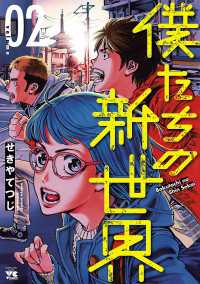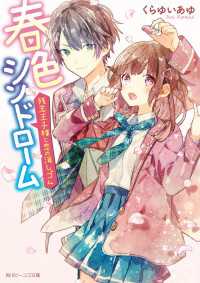Full Description
The first graduate text to address health literacy in the aging population
Low health literacy is a critical issue among adults, with over one third found to have difficulty understanding such basic information as that found on prescription bottles. This is the first graduate textbook to address key health literacy issues as they affect the health and wellbeing of the aging population. Embracing a topic spanning numerous disciplines, it features a dynamic, multicontextual systems approach and includes contributions from renowned scholars and practitioners in gerontology, public health, social work, nursing, and other related fields. The text emphasizes increasing health literacy among older adults through the use of technological tools and features, the most current research, and evidence-based programs and practices.
The book provides expansive coverage of the intersection of technology and health literacy, highlighting innovative approaches and discussing how to use technology with resource-limited groups. The text gives special consideration to rural, impoverished, culturally diverse, and lowliteracy elders and presents gold standard intervention programs and models. Also covered are the policy implications of programs focusing on increasing health literacy and future directions for meeting the Healthy People 2020 initiative. Case studies, review questions, learning objectives, and supplemental PowerPoint presentations will reinforce learning.
Key Features:
Provides a one-of-a-kind, multidisciplinary survey of the key health literacy issues of older adults
Focuses on increasing health literacy across the disciplines
Addresses a priority area of Healthy People 2020
Incorporates research and practice from gerontology, psychology, public health, social work, sociology, medicine, and nursing
Includes case studies, review questions, learning objectives, and PowerPoint slides for assisting instructors
Contents
Contents
Contributors
Preface
1. Health Literacy 101
Karen Kopera-Frye
2. Interpreting and Understanding Lab Results
Denny G. Ryman
3. Physician Approaches to Increasing Patient Health Literacy
Samer N. Roy, Shreya Sahay Saxena, and Krishnakant Shah
4. Adding Value to Physical Therapy With Health Literacy Tools and the Explanatory Model
Mary K. Milidonis, Jane G. Keehan, and Alexandra Talbott-Welch
5. Public Health Perspectives on Health Literacy
Takashi Yamashita, Darren Liu, Erick B. López, Jennifer M. Stevens, and J. Scott Brown
6. Fostering Independence Through Health Literacy: An Occupational Therapy Perspective
Patti T. Calk, Carolyn Murphy, and Donna Eichhorn
7. Explaining Radiographic Images to Older Adults
Jennifer Michael
8. Helping Older Adults Understand Medication and Treatment Regimens
Lori M. Metzger
9. Health Literacy and Speech and Hearing Professionals
Cathleen Carney-Thomas
10. Improving Health Literacy and Health Outcomes Using Cognitive Prosthetic Devices
Anthony A. Sterns and Tracy A. Riley
11. Gold Standard Programs to Assist Older Adults in Healthier Living
Theresa B. Skaar, Tara P. McCoy, and Kerry S. Kleyman
12. Cultural Competence and Health Literacy
Iris Feinberg, Daphne Greenberg, and Amani Talwar
13. Physical Activity and Exercise for the Aging Population
Tommie Church
14. Policy Implications of Increasing Health Literacy Among Elders
Ronald A. Harris
15. Where Do We Go From Here With Health Literacy?
R. V. Rikard and Julie McKinney
Index
-

- 電子書籍
- 悪役令嬢の華麗なる逆転人生~転生したか…
-

- 電子書籍
- ヒロインに婚約者を取られるみたいなので…
-

- 電子書籍
- 僕たちの新世界 2 ヤングチャンピオン…
-

- 電子書籍
- 春色シンドローム 残念王子様と恋の消し…




